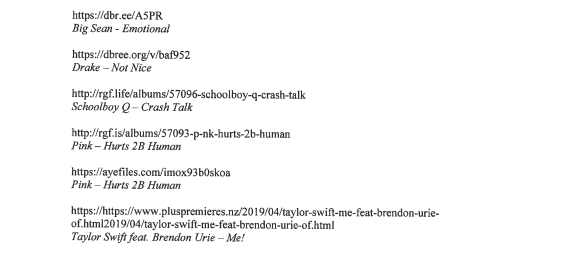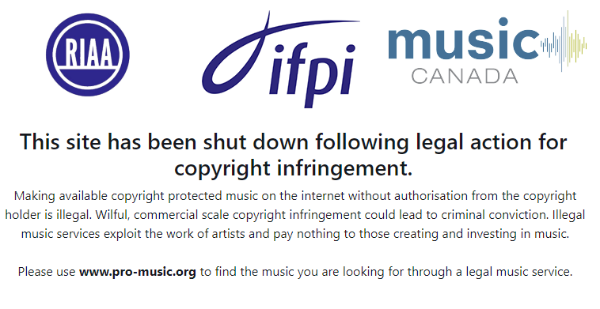
Every week, millions of pirates head off to popular torrent sites for their software fix.
Whether they’re looking for the latest operating systems, graphics tools, or DVD/Blu-ray burning software, most things are available for free download.
What most people never question is why these tools are available for free and indeed, who puts them online. Today we can put a little meat on those bones.
We recently spoke with Thumper, aka ThumperTM, one of the longest-standing uploaders on public torrent sites like The Pirate Bay and 1337x. But this isn’t just any uploader. Thumper is responsible for almost 1,000 torrent uploads over the past nine years, leading to millions of downloads across the Internet.
Thumper identifies as female (impossible to confirm, but we’ll proceed on that basis) and sports the profile picture as seen top right. It’s an image used by many Internet users so probably isn’t an accurate depiction. Thumper also claims to be from Switzerland but in this game, such ‘facts’ should be taken with a pinch of salt alongside a knowingly obvious nod to security.
What cannot be denied, however, is the popularity of Thumper’s torrents. If we take her Microsoft Office Pro Plus 2016 release as an example, that has received more than 801,000 downloads on 1337x alone.
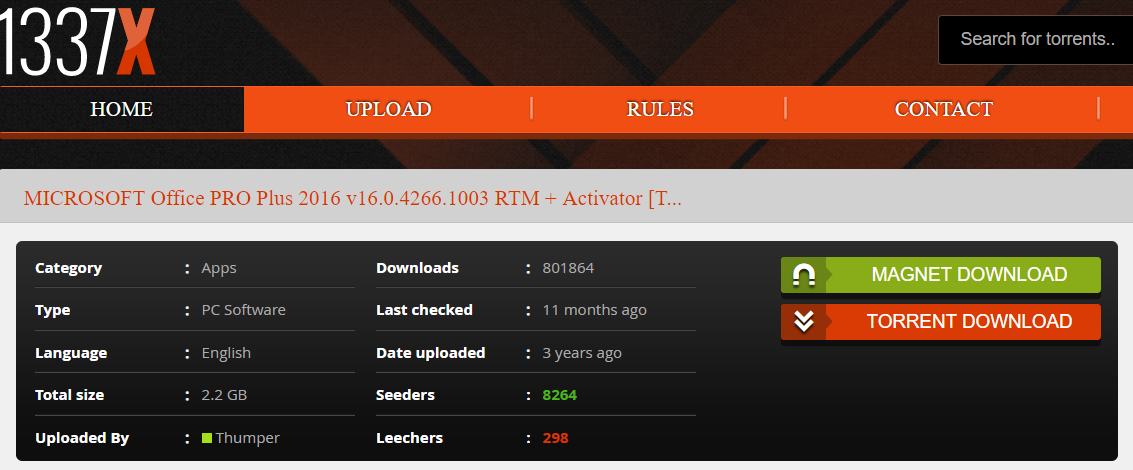
“This torrent has been download a few million times from all sites, because Office is one of the must-have programs for most of us,” Thumper informs TF.
Of course, not all torrents are this popular but Thumper’s history goes back around 14 years, when torrents weren’t even a priority for her. Things began on so-called “one-click” hosting sites in 2005, with a progression to torrents in 2007.
“I started uploading torrents at H33t, Demonoid, 1337x, ThePirateBay, and RARBG. Then I started my own site in 2010 (ThumperDC.com and TechTools.NET). Now all of those sites redirect to our legit Windows forum, TheWindowsForum.com,” she explains.
Over the past 12 years, Thumper’s torrents (mainly Windows software uploads) have spread far and wide. She has been uploading on The Pirate Bay since April 2010 and on that site alone has a confirmed 946 torrents, as the private user panel screenshot below shows.
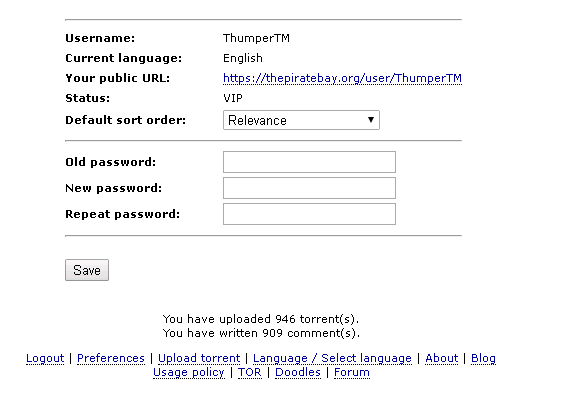
The Pirate Bay is obviously a very high-profile site but Thumper is a bit of a celebrity elsewhere too.
More than nine years ago she joined 1337x and for the last eight has been a trusted moderator there. In the interim, Thumper was also an uploader at the now-defunct original KickassTorrents, but still continues over at that platform’s namesake, KATCR.
Uploading and seeding so many torrents is a big undertaking, especially over a large number of years. There’s also a bit of a stigma attached to software uploads because unlike movies and TV shows, they have the potential to contain a virus or malware.
However, since reputations can be gone in a flash if an uploader lets something nefarious slip through the net, Thumper says that precautions are carried out in advance. Most uploaded software is obtained from friendly crackers (people who remove copy protection) before being run through a virtual machine and then scanned for viruses. Only then is it uploaded.
This perhaps contributed to Thumper earning a “green skull” from The Pirate Bay team around 2011, which is a small logo next to a user name which informs potential downloaders that while releases aren’t guaranteed to be flawless, they are more trusted than others without.
This is particularly important when one considers that people sometimes try to masquerade as Thumper in order to gain traction. We independently confirmed her status on one of the torrent sites she uploads to but most people don’t have that luxury so should proceed with caution when seeing her ‘brand’ online.
“The Pirate Bay has a ton of fake uploads lately, even some of them are infected and uploaded by other users with our tag ‘Windows app name v1.0 [ThumperDC] or [TechTools] or [TheWindowsForum]’, for example,” Thumper explains.
“1337x has other rules for new uploaders, you must apply for uploader status, then we review and decide if x_User is legit. People should always use torrent sites which are safe: 1337x, TPB, KATCR, RARBG, or TorrentGalaxy. And make sure to download from trusted uploaders.”
Finally, one of the biggest questions is why someone like Thumper keeps releasing torrent after torrent, year after year. What’s in it for her?
Each release does contain links to her own site (which now specializes in discussions and technical support for Windows software), so there’s obviously some benefit there. However, she insists that this isn’t the main motivation.
“Sharing is caring,” she concludes, citing the years-old ‘pirate’ mantra.
Source: TF, for the latest info on copyright, file-sharing, torrent sites and more. We also have VPN reviews, discounts, offers and coupons.

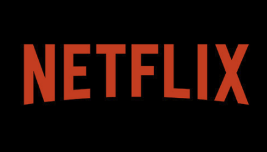 Netflix, like many other rightsholders, keeps a close eye on pirate sites.
Netflix, like many other rightsholders, keeps a close eye on pirate sites.
 Somewhere in the fall of 1998 a user named ‘Napster’ joined the w00w00 IRC channel, a chatroom on the EFnet network populated by a few dozen elite ‘hackers’.
Somewhere in the fall of 1998 a user named ‘Napster’ joined the w00w00 IRC channel, a chatroom on the EFnet network populated by a few dozen elite ‘hackers’.
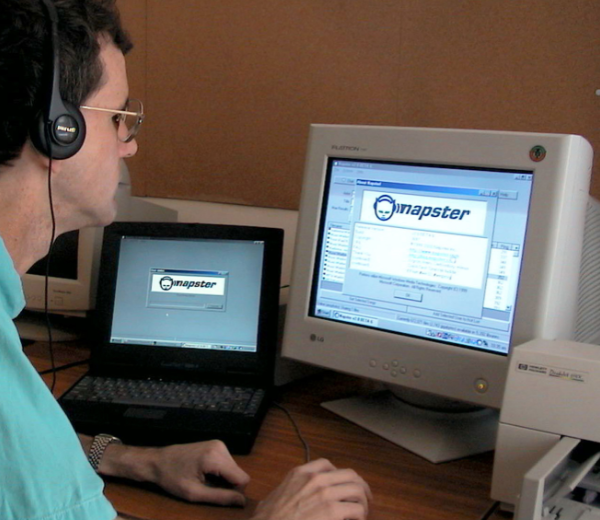

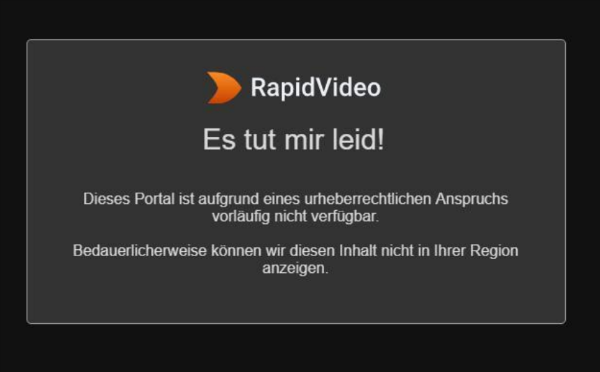

 To ensure that the Internet is able to function to the benefit of the broader public, the Government of Canada appointed an external panel to review Canada’s communications legislative framework.
To ensure that the Internet is able to function to the benefit of the broader public, the Government of Canada appointed an external panel to review Canada’s communications legislative framework. 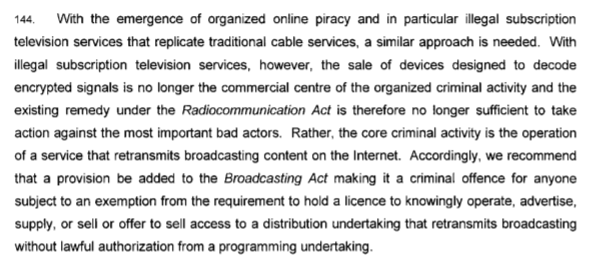

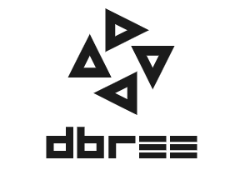 While movies and TV-shows tend to be the most sought-after content among pirates, music remains popular as well.
While movies and TV-shows tend to be the most sought-after content among pirates, music remains popular as well. 